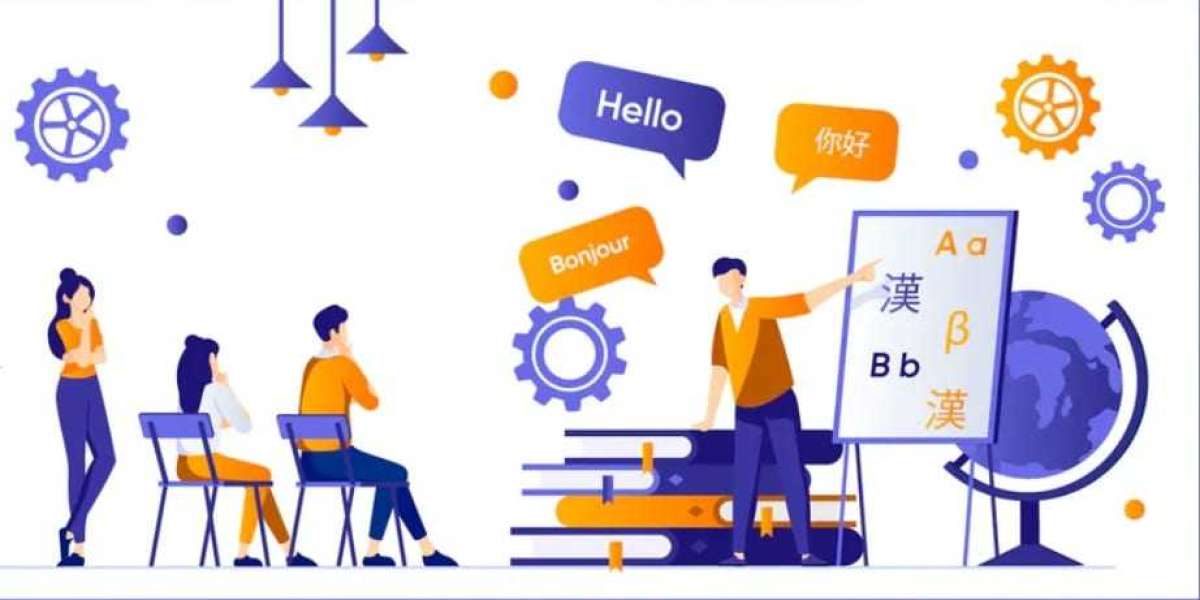Discover how translation services in Dubai are evolving with remote work trends, boosting flexibility, productivity, and global client reach.
The shift to remote work has significantly impacted how
Dubai, being an international hub for business, tourism, and trade, has always had a high demand for translation services. With people from so many countries interacting in various sectors, multilingual communication is crucial. As the demand continues to grow, the shift to remote work has given translation professionals the freedom to serve clients faster and more efficiently, regardless of location. No longer bound by office walls, translators can now collaborate with clients across the UAE and internationally, using cloud-based tools and communication platforms.
Previously, many translation agencies operated out of physical offices where translators and project managers worked together in a structured setting. However, the pandemic accelerated the adoption of remote work. As restrictions were introduced, agencies had to quickly adapt. Teams moved their processes online, relying on platforms like Zoom, Google Workspace, and project management tools to stay connected. This digital shift turned out to be more than just a temporary fix—it became a new standard.
Today, translation services in Dubai are leveraging technology to streamline every step of the workflow. From receiving client requests to managing translation memories and glossaries, much of the process is now automated or digitally managed. This not only reduces errors but also enhances speed and consistency across projects. With platforms like SDL Trados, MemoQ, and Smartcat, translators can work from any location while maintaining access to essential resources and collaboration tools.
One of the most significant benefits of remote work for translation services is the access to a wider talent pool. Agencies and businesses in Dubai are no longer limited to hiring linguists who live locally. They can now work with experts around the world who specialize in specific language pairs or industries. This has led to better quality translations, especially in technical fields like legal, medical, and financial services where accuracy and terminology are vital.
Moreover, the remote work model has opened new opportunities for freelance translators. Many professionals who previously worked in-house are now offering their services independently. This gives them greater flexibility and allows clients to work with specialized translators on demand. The result is a more dynamic and responsive translation market, one that can easily scale up or down based on project needs.
While the transition to remote work has many advantages, it also comes with challenges. Communication is one of them. Without face-to-face meetings, there’s a greater need for clear and timely digital communication. Translation services in Dubai have addressed this by adopting transparent workflows, regular updates, and centralized systems where clients can track progress in real-time. These systems ensure accountability and maintain high standards despite the physical distance.
Security is another concern in a remote setup. With sensitive documents often being shared online, ensuring data privacy and protection is critical. Translation agencies are investing in secure file-sharing platforms, VPNs, and compliance with regulations such as GDPR to protect client information. In fact, many clients now expect agencies to demonstrate how they handle data securely in a remote environment, making cybersecurity a key component of the service offering.
In addition, remote work has encouraged a shift toward continuous learning and skill development. Translators now have more flexibility in their schedules, allowing them to attend webinars, online courses, and language certifications. This results in better service for clients, as translators are more up-to-date with terminology, cultural nuances, and industry standards. Agencies also support this by offering training and access to resources that help their teams grow professionally.
Client expectations have evolved too. In the past, many clients wanted in-person meetings or drop-off services for documents. Now, most are comfortable with digital submission and remote consultations. This has allowed translation services in Dubai to cut overhead costs related to office space, printing, and logistics. These savings can be passed on to clients through competitive pricing or reinvested in better tools and quality assurance processes.
The flexibility of remote work also benefits clients who operate internationally or across time zones. Since translation teams are no longer restricted to Dubai’s office hours, urgent requests can be handled more quickly. Many agencies now operate 24/7 or offer weekend support, which is a significant advantage for fast-paced industries like e-commerce, law, and finance. Speed and reliability have become key selling points for remote-first translation services.
Moreover, the cultural diversity in Dubai has always demanded translations that are both accurate and culturally appropriate. Remote work has enabled agencies to connect with native-speaking translators who understand the subtle cultural contexts that matter in effective communication. Whether it's a legal document or a marketing campaign, these cultural insights ensure that messages resonate well with the target audience.
Looking forward, it’s clear that the remote model is here to stay. Many translation agencies in Dubai are adopting a hybrid approach, combining the flexibility of remote work with occasional in-person meetings for complex projects. This balance allows them to maintain strong client relationships while still benefiting from the scalability and efficiency of a remote workforce.
Technology will continue to play a critical role. Artificial intelligence, machine learning, and automated quality checks are becoming more sophisticated. While these tools won’t replace human translators, they will support them in producing faster, more accurate results. Translation services in Dubai are already integrating AI-powered tools to assist with initial drafts, which are then refined by human experts for precision and tone.
In conclusion, the landscape of translation services in Dubai has evolved rapidly with the rise of remote work. Agencies and freelancers alike are adapting to new technologies, flexible schedules, and global collaboration. While the transition brought its fair share of challenges, it has also unlocked immense opportunities. From improved talent access and faster delivery to cost savings and better security, the benefits are clear. As businesses across the city and beyond continue to rely on multilingual communication, the remote-ready translation industry stands ready to deliver.




















